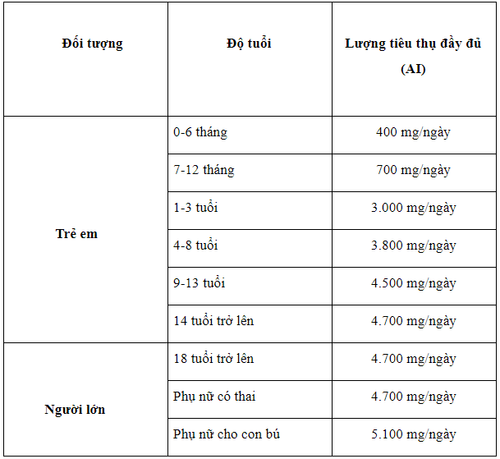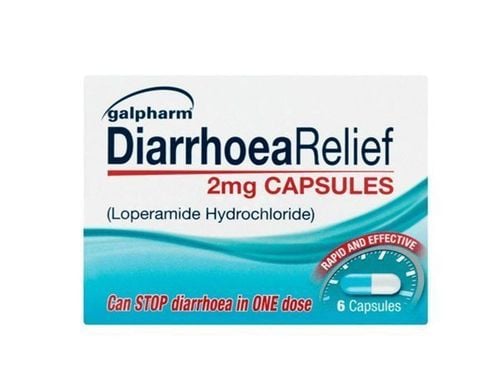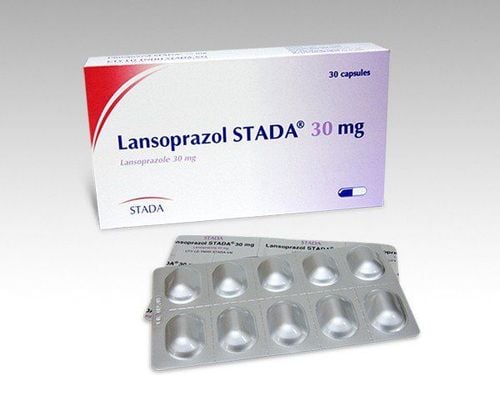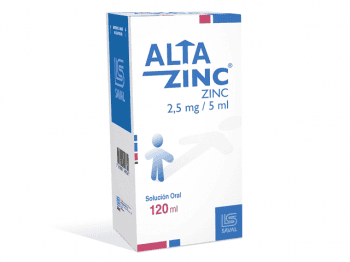This is an automatically translated article.
The article is professionally consulted by Master, Doctor Nguyen Thi Ngoc - General Internal Medicine - Endocrinology - Department of Examination & Internal Medicine - Vinmec Central Park International General Hospital. Doctor has more than 10 years of studying, researching and working in the field of endocrinology.Potassium is an electrolyte because it is highly reactive in water. When dissolved in water, it produces positively charged ions, allowing potassium to conduct electricity. This is especially important for the functioning of many bodily processes. A diet rich in potassium offers many health benefits.
1. What is Potassium?
Potassium is the 3rd most abundant mineral in the body.
Potassium helps the body balance pH and body fluids, send nerve signals and regulate muscle contractions.
About 98% of the potassium in your body is found in cells. Of that, 80% is found inside your muscle cells, while the remaining 20% can be found in your bones, liver, and red blood cells. Once in your body, potassium acts as an electrolyte.
When in water, the electrolyte dissolves into positive or negative ions that are capable of conducting electricity. Potassium ions carry a positive charge.
Our bodies use this electrolyte to manage a variety of processes, including body fluid balance, nerve signaling, and muscle contractions.
Therefore, a low or high amount of electrolytes in the body can affect many important functions.
Potassium helps regulate fluid balance
Water makes up about 60% of the total body weight. 40% of this water is found inside cells called intracellular fluid (ICF).
The rest is found outside of cells, areas such as blood, spinal fluid, and between cells. This fluid is called extracellular fluid (ECF).
In particular, the amount of water in the ICF and ECF is affected by their electrolyte concentrations, including potassium and sodium.
Potassium is the main electrolyte in the ICF and it determines the amount of water inside the cells. In contrast, sodium is the main electrolyte in the ECF and it determines the amount of water outside the cells.
The amount of electrolytes related to the amount of fluid is called osmotic. Under normal conditions, the permeability is the same between the inside and outside of your cells.
Simply put, there is a balance of electrolytes outside and inside your cells.
However, when osmolality is uneven, water from the side with less electrolytes will move to the side with more electrolytes to balance the electrolyte concentration.
This can cause the cells to shrink as water moves out of them, or may swell or burst as the water moves..
That's why it's important to make sure you consume it. correct electrolytes, including potassium.
Maintaining good fluid balance in the body plays a very important role for health. Poor fluid balance can lead to dehydration, which in turn affects the functioning of the heart and kidneys.
Potassium is very important for the nervous system

Kali giúp hệ thống thần kinh chuyển các tín hiệu não và cơ thể đều đặn
These signals are sent as nerve impulses and help regulate muscle contractions, heart rate, reflexes and many other functions in the body. Interestingly, nerve impulses are generated by sodium ions moving into the cell and potassium ions moving out of the cell.
The movement of ions changes the voltage of the cell, activating nerve impulses.
A drop in blood potassium levels can affect the body's ability to generate nerve impulses. Getting enough potassium from your diet can help you maintain nerve function.
Potassium helps regulate muscle and heart spasms
Nervous system helps regulate muscle contractions.
However, altered blood potassium levels can affect nerve signals in the nervous system, weakening muscle contractions.
Both low and high blood potassium levels can affect nerve impulses by changing the electrical potential of nerve cells. This mineral is also very important for a healthy heart, as its movement in and out of cells helps maintain a regular rhythm of the heart.
When potassium levels in the blood are too high, the heart can become dilated and tender. This can weaken its contractions and create an irregular heartbeat.
Likewise, low levels of potassium in the blood can also alter heart rate.
When the heart rate changes, it can lead to the heart not pumping enough blood to the brain, other organs and muscles.
In some cases, arrhythmia, or irregular heartbeat, can cause sudden death.
2. Why is it necessary to add potassium?
Consuming a diet rich in potassium is associated with many health benefits.
May help lower blood pressure
High blood pressure affects the health of nearly 1 in 3 Americans. It is a risk factor for heart disease, the leading cause of death worldwide.
A diet rich in potassium can lower blood pressure by helping the body get rid of excess sodium.
High sodium levels can raise blood pressure, especially for people with high blood pressure.
Research showed that when people with high blood pressure increased their potassium intake, their systolic blood pressure decreased by 3.49 mmHg, while diastolic blood pressure decreased by 1.96 mmHg, In another study that included 1,285 participants In the study, aged 25-64, the scientists found that those who ate the most potassium had a drop in blood pressure, compared with those who ate the least.
Those who consumed the most had systolic blood pressure 6 mmHg lower and diastolic blood pressure 4 mmHg lower on average.
May help protect against stroke

Những thực phẩm chứa Kali giúp cơ thể chống lại đột quỵ
A stroke occurs when there is a lack of blood flow to the brain. It is the cause of the deaths of more than 130,000 Americans each year. Some studies have found that a diet rich in potassium can help prevent stroke. In a study involving 128,644 participants, scientists found that those who ate the most potassium had a 24% lower risk of stroke than those who ate the least. Also, another study with 247,510 participants found that those who ate the most potassium had a 21% lower risk of stroke. They also found that eating a diet rich in this mineral was associated with a reduced risk of heart disease.
May help prevent osteoporosis
Osteoporosis is a condition characterized by hollow and spongy bones.
It is often associated with low calcium levels, an important mineral for bone health. Interestingly, studies show that a diet rich in potassium can help prevent osteoporosis by reducing the amount of calcium the body loses through urine. In a study conducted in 62 healthy women aged 45-55, scientists found that those who ate the most potassium had the greatest total bone mass. In another study of 994 healthy premenopausal women, scientists found that those who ate the most potassium had more bone mass in the lower back and hip bones.
Can help prevent kidney stones
Kidney stones are clumps of matter that can form in the urine.
Calcium is a common mineral in kidney stones and some studies show that potassium citrate reduces calcium levels in the urine. In this way, potassium can help fight kidney stones.
Many fruits and vegetables contain potassium citrate, so it shouldn't be difficult to add potassium to your diet.
In a 4-year study of 45,619 men, scientists found that those who consumed the most potassium daily had a 51% lower risk of kidney stones.
Similarly, in a 12-year study, in 91,731 women, scientists found that those who consumed the most potassium daily had a 35% lower risk of kidney stones.
May reduce water retention
Water retention occurs when excess fluid builds up inside the body.
Historically, potassium has been used to treat water retention. Studies show that a high potassium intake can help reduce water retention by increasing urine production and decreasing sodium levels.
3. The principle of adding potassium to the body
Potassium deficiency is more common in certain populations, including:
Use of certain medications, such as diuretics Physically demanding work Athletes training in hot areas high levels and excessive sweating Have a health condition that affects absorption, such as Crohn's disease Eating disorders Smoking or breathing in a lot of smoke Alcohol or drug abuse Diet Taking with food sources rich in potassium and low in sodium may reduce the risk of high blood pressure and stroke.

However, very high potassium intake can be fatal.
Some foods that are naturally rich in potassium include:
Bananas Butter Nuts, such as almonds and peanuts Citrus fruits Green vegetables Milk Potatoes You need to be careful, with certain foods when heated Boiling can reduce the potassium content.
4. Risks of potassium supplements
Some risks can occur when you take inappropriate potassium supplements, such as:In high doses, potassium can be dangerous. Potassium supplements should not be taken without consulting your doctor. In normal doses, potassium is quite safe. It can cause stomach upset. Some people may be allergic to potassium supplements. People with kidney disease, diabetes, heart disease, Addison's disease, stomach ulcers, or other health problems should not take potassium supplements unless directed by their doctor. Overdose: Signs of a potassium overdose include muscle weakness or paralysis, irregular heartbeat, confusion, tingling sensations in the limbs, low blood pressure, and coma. Other possible side effects are: muscle weakness or paralysis, heart rhythm disturbances.
Please dial HOTLINE for more information or register for an appointment HERE. Download MyVinmec app to make appointments faster and to manage your bookings easily.
Articles refer to sources: webmd.com, healthline.comMORE:
Why does your body need Potassium? Does your body have enough potassium? Foods High in Potassium













